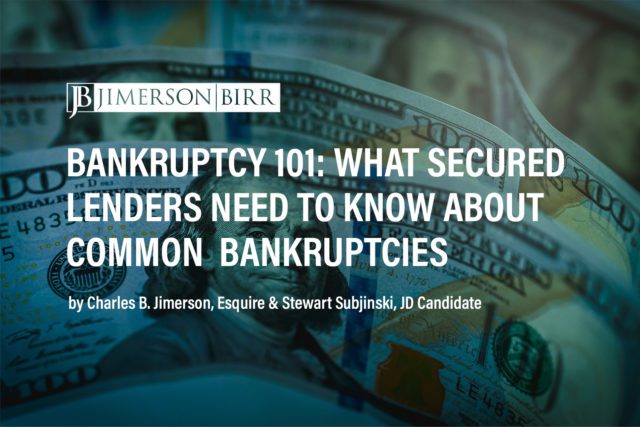What are creditors’ committees and trustees?
Creditors’ committees represent the interests of unsecured creditors. These committees often negotiate with the debtor and participate in developing a bankruptcy plan. In Florida, creditors’ committees play a significant role in Chapter 11 bankruptcy cases, ensuring that creditors’ rights are protected and promoting their financial interests.
On the other hand, trustees are individuals or entities appointed to oversee and manage the debtor’s estate during bankruptcy proceedings. The trustee’s primary function is to ensure creditors receive the maximum possible payment from the debtor’s assets. In Florida, trustees are available in both Chapter 7 and Chapter 13 bankruptcy cases under the guidance of the United States Trustee Program.
Need a bankruptcy law advocate? Schedule your consultation today with a top bankruptcy and restructuring attorney.
Which Florida laws and regulations apply to creditors’ committees and trustees?
The formation, operation, and responsibilities of creditors’ committees in Florida follow the U.S. Bankruptcy Code, specifically, 11 U.S.C. § 1102, establishing the appointment and duties of creditors’ committees in Chapter 11 cases. Additionally, the Federal Rules of Bankruptcy Procedure provide procedural guidance for creditors’ committees, with Rule 2007.1 detailing the appointment of creditors’ committees.
Furthermore, the Bankruptcy Code outlines the powers and duties of creditors’ committees in various sections, such as 11 U.S.C. § 1103, which grants committees the authority to consult with the debtor, investigate the debtor’s business affairs, and participate in formulating a plan. Creditors’ committees in Florida must adhere to these federal laws and regulations, ensuring that they effectively represent the interests of unsecured creditors during the bankruptcy process.
In Florida, trustees must navigate a blend of federal bankruptcy laws and state-specific statutes. The Bankruptcy Code governs trustees’ appointment, duties, and powers, and Federal Rules of Bankruptcy Procedure outline specific procedures trustees must follow.
Trustees must also be aware of the Florida Uniform Fraudulent Transfer Act, which covers fraudulent transfers and their implications in bankruptcy cases. Another relevant statute is the Florida Uniform Disposition of Community Property Rights at Death Act, which can affect community property treatment in a bankruptcy case. Further, the Local Rules of the United States Bankruptcy Court for the Southern, Middle, and Northern Districts of Florida provide additional guidance for trustees operating within these districts.
How do creditors’ committees and trustees connect to the bankruptcy process?
Creditors’ committees are integral to bankruptcy, particularly in Chapter 11 cases. They serve as representatives of unsecured creditors, ensuring their interests are considered and protected throughout the proceedings. In addition, these committees are often involved in negotiations with the debtor, formulating a reorganization plan, and overseeing the debtor’s financial affairs.
Additionally, creditors’ committees actively participate in the case, evaluating the debtor’s financial situation and providing input on critical decisions. They ensure unsecured creditors’ voices are heard and contribute to a more equitable distribution of the debtor’s assets. By working closely with the debtor and other parties, creditors’ committees help shape the outcome of the bankruptcy process, ultimately aiming to maximize the recovery for unsecured creditors.
Trustees are similarly integral, acting as neutral third parties responsible for administering the debtor’s estate. For instance, in a Chapter 7 bankruptcy, trustees are responsible for liquidating the debtor’s non-exempt assets and distributing the proceeds to creditors. They also review the debtor’s financial affairs, investigate potential fraudulent activities, and ensure that creditors’ claims are legitimate.
In a Chapter 13 bankruptcy, on the other hand, trustees collect and disburse payments according to the debtor’s approved repayment plan. Their duties may also include mediating disputes between the debtor and creditors and monitoring the debtor’s progress during the repayment period. By performing these tasks, trustees facilitate a fair and efficient bankruptcy process that ultimately benefits all parties involved.
When a set of facts is appropriate for bankruptcy services, there are many paths a claimant may take. We are value-based attorneys at Jimerson Birr, which means we look at each action with our clients from the point of view of costs and benefits while reducing liability. Then, based on our client’s objectives, we chart a path to seek appropriate remedies.
To determine whether your unique situation may necessitate litigation or another form of specialized bankruptcy advocacy, please contact our office to set up your initial consultation.
What legal risks do creditors’ committees and trustees commonly face in bankruptcy matters?
Creditors
- Breach of fiduciary duty: Creditors’ committees have a fiduciary responsibility to act in the best interests of their unsecured creditors. Failure to uphold this duty may expose committee members to legal liability.
- Conflicts of interest: Members of the committee must avoid situations where their personal interests could potentially conflict with their fiduciary duties to the unsecured creditors. Such conflicts may undermine the committee’s effectiveness and lead to legal complications.
- Failure to properly investigate: Creditors’ committees are responsible for investigating the debtor’s financial affairs and conduct. An inadequate investigation may result in missed opportunities to recover assets or identify potential wrongdoing, diminishing returns for unsecured creditors.
- Improper disclosure of confidential information: Committee members may have access to sensitive information about the debtor’s business, which they must treat with the utmost confidentiality. Disclosing confidential information can result in legal repercussions and potentially harm the interests of unsecured creditors.
- Inadequate representation in negotiations: Creditors’ committees often negotiate with the debtor and other parties. Failure to effectively represent the interests of unsecured creditors during negotiations may result in suboptimal outcomes for those creditors.
- Non-compliance with bankruptcy laws and regulations: Creditors’ committees must adhere to the U.S. Bankruptcy Code and Federal Rules of Bankruptcy Procedure requirements. Non-compliance with these laws and regulations can expose committee members to legal risks and potentially harm the interests of unsecured creditors.
Trustees
- Breach of fiduciary duty: Trustees are held to a high standard of care as they manage the debtor’s estate. They must act in the creditors’ and debtors’ best interests, avoiding conflicts of interest and self-dealing. Failure to uphold their fiduciary duties could result in liability.
- Errors and omissions: Trustees must navigate complex laws and regulations while managing bankruptcy cases. Mistakes in fulfilling their duties (e.g., inaccurately distributing assets or improperly filing reports) could expose them to legal claims by the affected parties.
- Fraudulent transfers: Trustees must investigate and potentially reverse fraudulent transfers made by the debtor. If they fail to identify and recover such transfers, they may face liability for their negligence.
- Preference actions: The Bankruptcy Code allows trustees to recover certain payments made by the debtor before filing for bankruptcy. If trustees do not adequately pursue these preference actions, they may be liable for not maximizing the return to creditors.
- Failure to disclose assets: Trustees must identify and report all of the debtor’s assets. They could be accountable for their oversight if they overlook or fail to disclose assets.
- Mismanagement of assets: Trustees safeguard and preserve the debtor’s estate. Mismanaging assets (e.g., failing to liquidate them at a reasonable value or incurring unnecessary expenses) could lead to legal claims against the trustee.
Please contact our office to set up your initial consultation to see what forms of legal protection and advocacy may be available for your unique situation.
Frequently Asked Questions
- How is a creditors’ committee formed?
A creditors’ committee is typically appointed by the U.S. Trustee early in a bankruptcy case, usually in a Chapter 11 proceeding. The U.S. Trustee selects the committee’s members from a pool of the debtor’s largest unsecured creditors.
- Can a creditors’ committee be disbanded or replaced?
Yes, the court or the U.S. Trustee can disband or replace a creditors’ committee if it is determined that the committee is not adequately representing the interests of the unsecured creditors or failing to fulfill its duties.
- Are creditors’ committees involved in Chapter 7 bankruptcy cases?
Although creditors’ committees are more common in Chapter 11 cases, a creditors’ committee can be appointed in a Chapter 7 case at the discretion of the U.S. Trustee if it is determined that such a committee would be beneficial to the administration of the case.
- How are trustees compensated for their work in bankruptcy cases?
Trustees receive compensation based on a fee structure outlined in the Bankruptcy Code, with fees generally calculated as a percentage of the amounts distributed to creditors or collected under Chapter 13 repayment plans.
- Can a trustee be held personally liable for actions taken during their duties?
While trustees have protection from personal liability for actions taken in their official capacity, they can be held liable for actions that constitute a breach of fiduciary duty, negligence, or willful misconduct.
- Can a trustee be removed from their position in a bankruptcy case?
Yes, a trustee is removable alongside a corresponding finding that they are unfit or not discharging their duties effectively. In this case, the United States Trustee or a party in interest may request the court to remove the trustee for cause.
Have more questions about how bankruptcy services could positively impact your business operations and relationships?
Crucially, this overview of creditors’ committees does not begin to cover all the laws implicated by this issue or the factors that may compel the application of such laws. Every case is unique, and the laws can produce different outcomes depending on the individual circumstances.
Jimerson Birr attorneys guide our clients to help make informed decisions while ensuring their rights are respected and protected. Our lawyers are highly trained and experienced in the nuances of the law, so they can accurately interpret statutes and case law and holistically prepare individuals or companies for their legal endeavors. Through this intense personal investment and advocacy, our lawyers will help resolve the issue’s complicated legal problems efficiently and effectively.
Having a Jimerson Birr attorney on your side means securing a team of seasoned, multi-dimensional, cross-functional legal professionals. Whether it is a transaction, an operational issue, a regulatory challenge, or a contested legal predicament that may require court intervention, we remain tireless advocates at every step. Being a value-added law firm means putting the client at the forefront of everything we do. We use our experience to help our clients navigate even the most complex problems and come out the other side triumphant.
If you want to understand your case, the merits of your claim or defense, potential monetary awards, or the amount of exposure you face, you should speak with a qualified Jimerson Birr lawyer. Our experienced team of attorneys is here to help. Call Jimerson Birr at (904) 389-0050 or use the contact form to schedule a consultation.

We live by our 7 Superior Service Commitments
- Conferring Client-Defined Value
- Efficient and Cost-Effective
- Accessibility
- Delivering an Experience While Delivering Results
- Meaningful and Enduring Partnership
- Exceptional Communication Based Upon Listening
- Accountability to Goals










